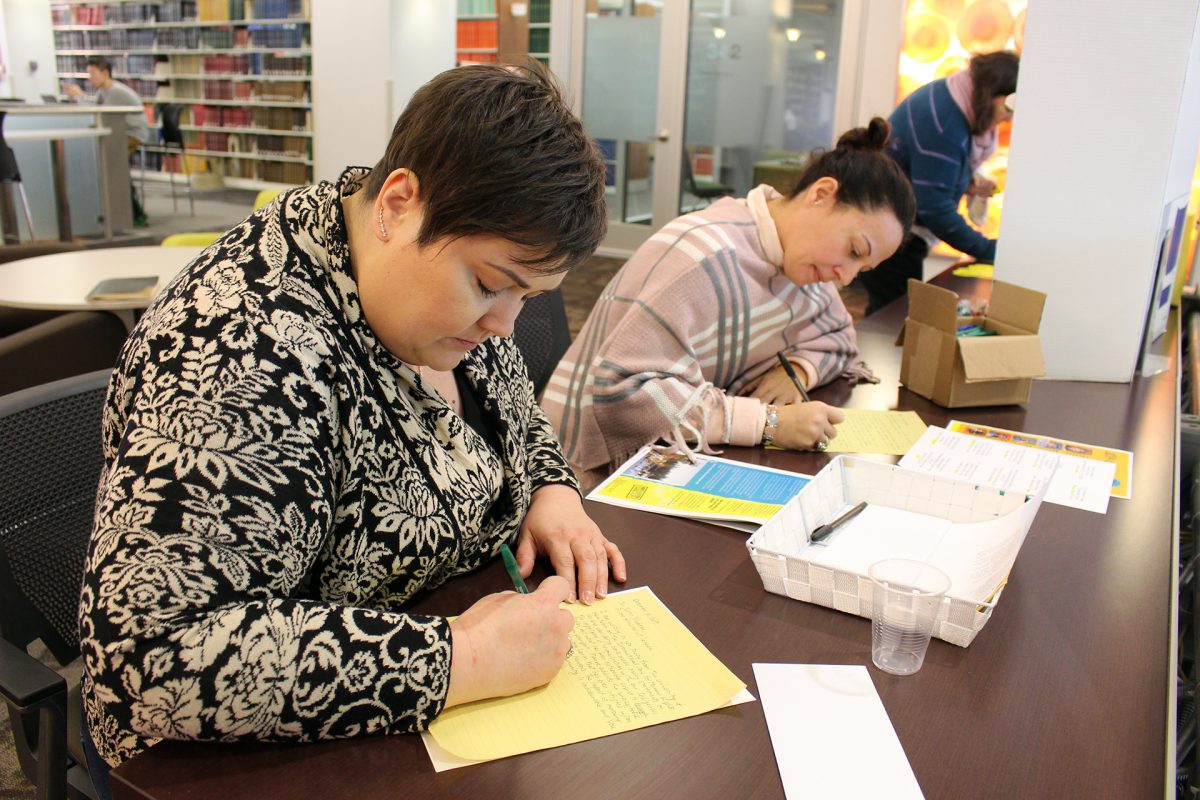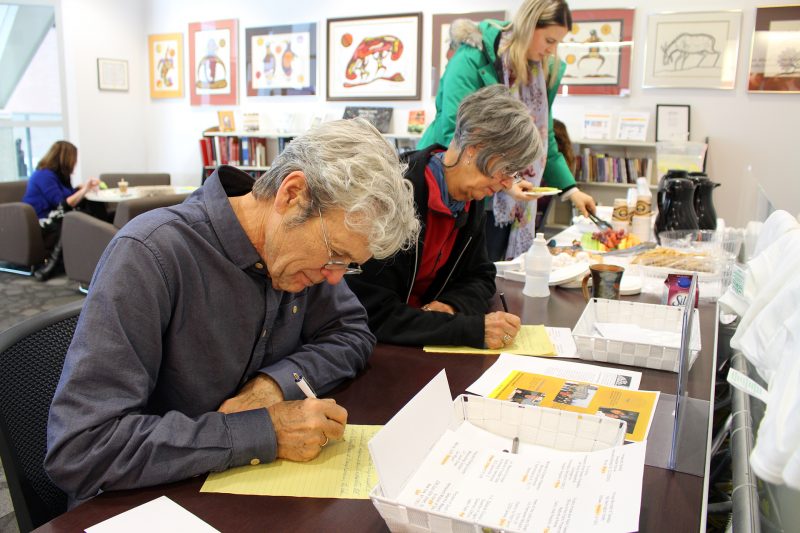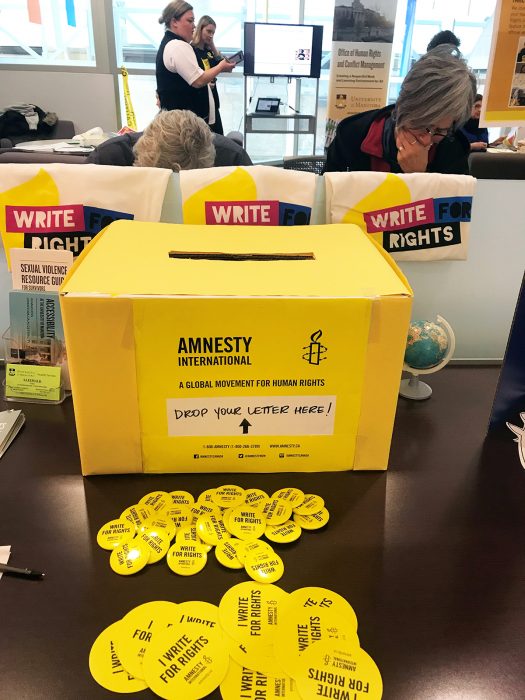
Human Rights Day marked with on-campus letter-writing campaign
The Rady Faculty of Health Sciences and the U of M marked International Human Rights Day on Dec. 10 by participating in Write for Rights, Amnesty International’s global letter-writing campaign in support of individuals and communities impacted by human rights abuses.
This year, Amnesty International Canada dedicated its campaign to the youth of Asubpeeschoseewagong (Grassy Narrows) First Nation and their ongoing fight for clean water. The community’s water supply was contaminated by mercury from industrial pollution in the 1960s and ’70s. Since then, residents have suffered from adverse health effects linked to mercury poisoning.
The event was hosted by the Office of Human Rights and Conflict Management and the Neil John Maclean Health Sciences Library. It was spearheaded by Ilaneet Goren, human rights and conflict management advisor.
“As a university that works to promote human rights and dignity for all through research, teaching and work with communities, it’s important for us to locate our work in the larger social and global context,” said Goren.
 The write-a-thon kicked off with an overview of the situation in Grassy Narrows, stories of human rights defenders from around the world and tips for effective letter-writing, either in hard-copy or email format. U of M community members were invited to drop in to the library to contribute messages calling on the federal government to take action on providing clean water, or letters of support to the youth of Grassy Narrows.
The write-a-thon kicked off with an overview of the situation in Grassy Narrows, stories of human rights defenders from around the world and tips for effective letter-writing, either in hard-copy or email format. U of M community members were invited to drop in to the library to contribute messages calling on the federal government to take action on providing clean water, or letters of support to the youth of Grassy Narrows.
Participants could also write letters in support of other human rights cases being highlighted by Amnesty International; fact sheets about the cases were provided.
Allison Balasko and Brendan Games Gordon, first-year students at the Max Rady College of Medicine, stopped by to write letters of support.
Balasko said she thinks it’s important for people to educate themselves about human rights violations that are happening around the world.
“It’s really eye-opening for someone to bring these stories to the forefront for you,” said Balasko. “In health care … you don’t always realize how the impacts of social determinants, such as poverty, and different types of human rights violations can affect someone’s health. I think it’s important to step outside of your bubble and do something.”
 Gordon said the medical students have learned about injustice experienced by Indigenous communities, and the write-a-thon was an opportunity to put that learning into practice.
Gordon said the medical students have learned about injustice experienced by Indigenous communities, and the write-a-thon was an opportunity to put that learning into practice.
“We have an entire Indigenous health component that teaches us to understand past wrongs, how to ameliorate those wrongs and move forward with reconciliation,” he said.
“We talk about health from both a preventable and treatable standpoint. We talk about our positions, not just as future physicians who will advocate for patients, but also for entire communities.”
Every year around International Human Rights Day, as part of the Write for Rights campaign, hundreds of thousands of people around the world send a letter or email on behalf of someone they have never met to speak out against human rights abuses. This year, all 10 global cases focused on young people under the age of 25 who are a leading force for change.
“The event is our way to show solidarity with human rights defenders around the world, many of whom are students,” said Goren. “By learning their stories and adding our voices, we are reminded that we are not working in isolation. We are part of a global community, linked by our collective desire to live free from violence and oppression.”






